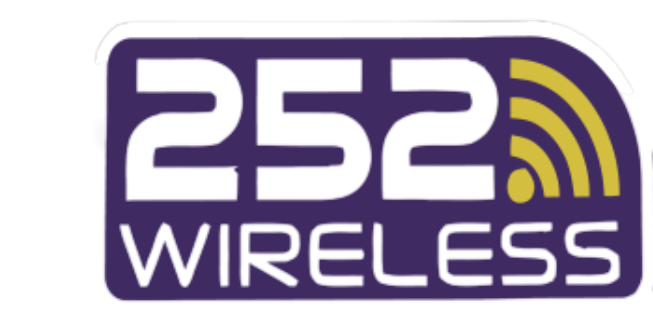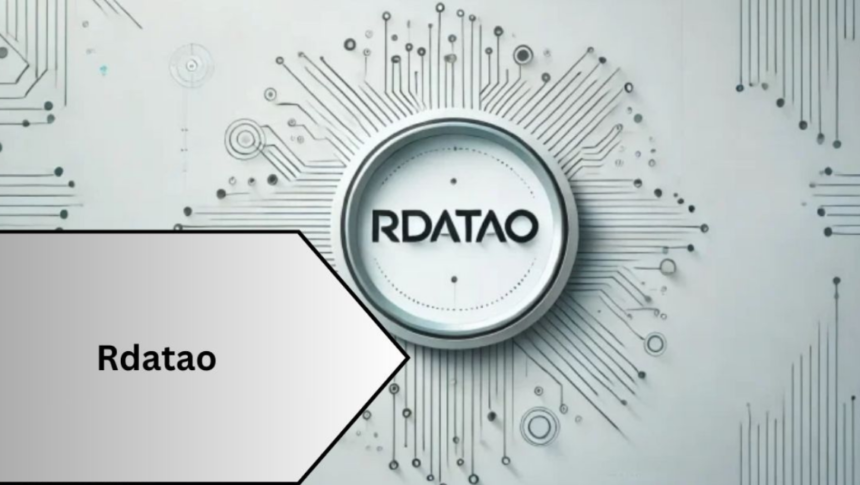Introduction:
In today’s digital world, data is more valuable than ever. As companies grow and data sources multiply, there’s an increasing need for efficient and scalable data management solutions. Rdatao is one such solution gaining attention across various industries for its powerful data integration, analysis, and security capabilities. This guide will explore Rdatao in detail, covering its features, applications, benefits, and frequently asked questions to help users understand how it works and how it can add value to organizations.
What is Rdatao?
Rdatao is a data management solution designed to help organizations effectively gather, store, and analyze data from multiple sources. It integrates seamlessly with various data systems, allowing users to access and process information in real time. Rdatao’s primary focus is on simplifying data management and analysis for industries that handle large volumes of information, like finance, healthcare, and retail. With its user-friendly interface and high-level security features, Rdatao is an ideal choice for organizations aiming to make data-driven decisions while keeping their information secure.
Key Features of Rdatao
Rdatao offers several features that make it a preferred choice for businesses handling vast amounts of data. Here’s a breakdown of its main features:
1. Data Integration
Rdatao can integrate with multiple data sources, including databases, APIs, and third-party applications. This feature allows users to compile data from various systems into one centralized location, making it easier to analyze and manage.
2. Scalability
As data needs grow, Rdatao scales to accommodate increased data volumes without requiring significant changes to infrastructure. This scalability makes it suitable for businesses of all sizes, from startups to large enterprises.
3. Real-Time Analytics
Rdatao provides real-time analytics, allowing users to access up-to-date insights as data is processed. This feature is particularly useful for industries that need quick information, like stock market trading or healthcare diagnostics.
4. Advanced Data Security
Security is a key feature of Rdatao. It includes encryption, multi-factor authentication, and access controls to protect sensitive information. Rdatao also complies with data protection regulations, ensuring that stored data is secure and compliant with laws like GDPR.
5. User-Friendly Interface
Rdatao’s interface is designed to be intuitive, even for users who may not have a technical background. This ease of use helps companies reduce training time and encourages more team members to use the platform effectively.
| Feature | Description |
|---|---|
| Data Integration | Collects data from multiple sources |
| Scalability | Adapts to growing data volumes |
| Real-Time Analytics | Offers instant insights on data trends |
| Data Security | Protects sensitive information |
| User-Friendly | Simple interface for easy navigation |
Applications of Rdatao Across Industries
Rdatao’s versatility allows it to be applied across various industries. Here are some of the key applications of Rdatao in different fields:
1. Business Analytics
In business, Rdatao supports analytics by processing customer data, sales information, and operational metrics. This enables companies to make strategic decisions based on insights derived from real-time data.
2. Healthcare
Rdatao aids healthcare providers by managing patient records, treatment plans, and diagnostic data. With real-time analytics, healthcare professionals can make timely and informed decisions, improving patient outcomes and optimizing resource allocation.
3. Finance
Financial institutions use Rdatao for tasks like fraud detection, customer profiling, and market trend analysis. By providing fast access to relevant data, Rdatao helps financial firms respond to market changes effectively and protect against security threats.
4. Retail
In retail, Rdatao is used for inventory management, sales forecasting, and customer behavior analysis. It enables retailers to tailor marketing strategies, predict customer preferences, and improve supply chain efficiency.
5. Education
Educational institutions use Rdatao to monitor student performance and manage data related to resources, budgets, and faculty. Rdatao’s analytics help educators make data-driven decisions for enhancing learning experiences and optimizing school operations.
Benefits of Rdatao
Rdatao offers multiple benefits to organizations, making it a valuable asset for data management. Key benefits include:
- Improved Decision-Making: Rdatao provides quick, accurate insights, allowing organizations to make well-informed strategic decisions.
- Operational Efficiency: By automating data processing, Rdatao saves time and reduces the likelihood of errors associated with manual data handling.
- Enhanced Security Measures: Rdatao’s security protocols protect sensitive information, ensuring compliance with data protection regulations.
- Cost Savings: Rdatao reduces expenses related to data storage, maintenance, and infrastructure by offering a scalable solution.
- Real-Time Access to Data: With real-time analytics, users can access up-to-date information, which is essential for time-sensitive industries.
How Rdatao Works: Step-by-Step Process
Rdatao’s process can be broken down into three main stages: data collection, data processing, and data analysis.
- Data Collection: Rdatao gathers data from a variety of sources, including databases, APIs, and third-party applications. The platform can handle data in different formats, making it versatile for organizations with multiple data inputs.
- Data Processing: After collection, data is processed to ensure accuracy and structure. This includes cleaning, organizing, and storing the data in a format that’s ready for analysis. Rdatao’s processing capabilities help users create a structured database for easier data handling.
- Data Analysis: Finally, Rdatao performs analytics on the processed data. This can involve generating visual reports, predictive models, or real-time alerts based on user needs. Data analysis enables businesses to act on insights derived from their data in a timely manner.
Bullet Points for Rdatao Workflow
- Collects data from multiple sources.
- Processes data to ensure accuracy.
- Analyzes data to deliver actionable insights.
Rdatao and Data Security
Data security is a top priority for any organization managing sensitive information, and Rdatao includes several measures to ensure data protection:
- Encryption: Rdatao encrypts data both at rest and in transit, making it inaccessible to unauthorized users.
- User Authentication: Multi-factor authentication (MFA) is used to verify user identities, ensuring that only authorized personnel can access the data.
- Access Control: Role-based access control (RBAC) is in place to restrict data access based on job roles and permissions.
- Data Compliance: Rdatao adheres to international data protection standards, including GDPR, ensuring compliance and protecting against legal liabilities.
Comparison: Rdatao vs. Traditional Data Solutions
How does Rdatao compare to traditional data solutions? Here’s a comparison table outlining the differences:
| Aspect | Rdatao | Traditional Solutions |
|---|---|---|
| Real-Time Analysis | Yes | Often delayed |
| Data Integration | Multiple sources | Limited to specific databases |
| Scalability | Easily scalable | May require new infrastructure |
| Security | Advanced protocols | Basic security measures |
| User-Friendly | Intuitive and simple | May require technical expertise |
FAQs on Rdatao
What is the primary use of Rdatao?
Rdatao is primarily used for data integration, storage, and analysis. It enables organizations to centralize data from various sources and analyze it for real-time insights, making it valuable for industries like finance, healthcare, and retail.
How does Rdatao ensure data security?
Rdatao employs several security measures, including encryption, multi-factor authentication, and access control. These measures protect data from unauthorized access, and Rdatao also adheres to data protection regulations like GDPR.
Can Rdatao handle large data volumes?
Yes, Rdatao is built to be highly scalable. It can manage large data volumes, making it suitable for organizations with growing data needs. Users can start with small data sets and expand as their requirements grow without compromising performance.
Is Rdatao easy to use?
Rdatao is designed to be user-friendly, with an intuitive interface that simplifies navigation and usage. This makes it accessible to users with varying levels of technical expertise, reducing the need for extensive training.
How does Rdatao differ from other data solutions?
Rdatao offers real-time analytics, high scalability, and robust security measures, which distinguish it from traditional data solutions that may not have these capabilities. Additionally, Rdatao’s integration capabilities allow it to work with multiple data sources seamlessly.
Conclusion
Rdatao is a powerful data management solution designed for organizations seeking efficient, secure, and scalable ways to handle data. With features like data integration, real-time analytics, scalability, and advanced security, Rdatao is a valuable tool for any industry looking to make data-driven decisions.Rdatao is an indispensable part of today’s data-driven landscape, helping organizations transform raw data into actionable insights. By combining data collection, analysis, visualization, and ethical practices, Rdatao enables better decision-making, optimizes processes, and drives innovation. As technology continues to advance, the role of Rdatao in shaping the future of various industries will only grow, making it a crucial field for businesses aiming to stay competitive.





